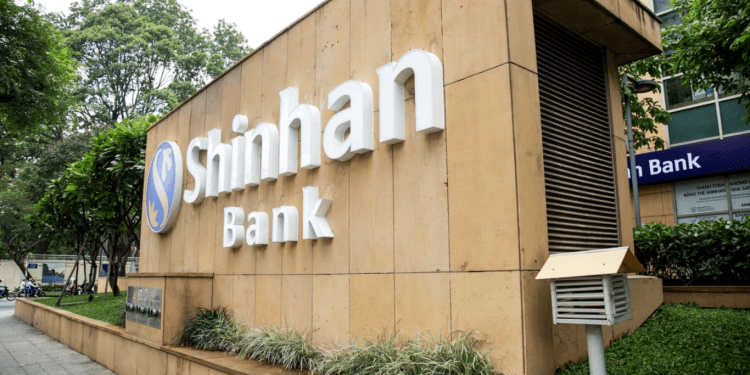- Shinhan Bank completes stablecoin remittance test on Hedera’s public network in collaboration with SCB TechX and other financial institutions.
- The proof-of-concept achieved real-time settlement and foreign exchange integration for Thai Baht, New Taiwan Dollar, and South Korean Won.
- South Korea’s Financial Services Commission introduces new rules requiring crypto asset issuers to disclose their holdings starting from January 1, 2024, aiming to boost transparency and investor confidence.
On Tuesday, Shinhan Bank, SCB TechX, and other financial institutions announced that the proof-of-concept (PoC) test for stablecoin remittance payments was completed successfully. This trial is a follow-up effort by Shinhan Bank after their initial partnership with Standard Bank on stablecoin international remittances in 2021.
This proof-of-concept (PoC) pilot was executed using Hedera’s distributed ledger technology (DLT), and was designed to address cross-border payment issues such as high fees, lengthy settlement times, and tracking issues.
According to a Hedera press release, the trial achieved real-time settlement and FX rate integration across the Thai Baht (THB), New Taiwan Dollar (NTD), and South Korean Won (SKW).
Furthermore, Hedera claims that the PoC is compatible with Ethereum Virtual Machine (EVM). This means that EVM-based stablecoin issuers like Circle and Tether will be able to participate in future pilots using the same framework.
Byung Hee Kim, Chief of the Blockchain division at Shinhan Bank, expressed the bank’s delight at the opportunity to investigate the potential of stablecoins as a means of cross-border payments.
“The successful completion of this second PoC marks an important step forward in our efforts to make cross-border payments faster, cheaper, and more accessible to people around the world,” he added.
Shinhan Bank remains committed to the cryptocurrency industry with new blockchain initiatives and solutions. In 2019, the Seoul-based bank collaborated with two fintech firms to develop a blockchain-based security solution.
The South Korean crypto industry appears to be on an upward trajectory, with traditional finance (TradFi) institutions such as Shinhan Bank committing to further adopting blockchain technology and introducing new solutions in 2023.
South Korea Takes a Firm Stand Against the Crypto Industry
Following the collapses that shook the cryptocurrency industry in 2022, the South Korean government has been developing and releasing stricter rules to regulate the country’s cryptocurrency landscape.
South Korea’s Financial Services Commission (FSC) recently published a new bill requiring all companies that issue or hold crypto assets to disclose their holdings. This new rule is expected to go into effect on January 1, 2024.
The range of virtual assets to be declared includes fungible tokens based on DLT and similar encryption technology or those issued using cryptography. The commission describes this mandatory public disclosure as a measure to increase transparency and investor confidence in the South Korean crypto scene.














